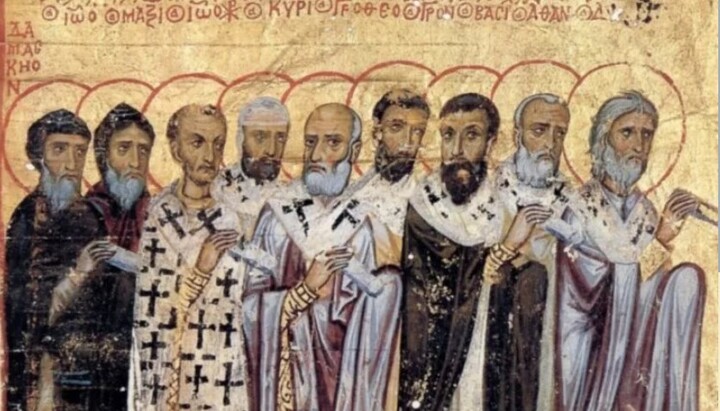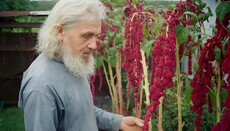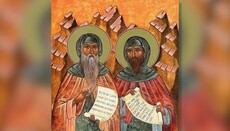From the First Ecumenical Council to the last step towards salvation

Salvation is not a worldview but an experiential work within one's own soul.
The Holy Fathers of the First Ecumenical Council established a boundary for us between faith and heresy, between the Church and the world, between those who "live like everyone else" and those who are being saved. This boundary runs along a worldview horizontal.
However, there is no Creed that can clearly define every step a person must take on the path to Heaven. There is no differentiated approach to the process of spiritual growth because people are different, and each has their own unique ladder leading to the heavenly abodes. We are given general principles, following which we can join eternity.
Salvation is not a worldview but an experiential work within one's own soul. For it is there that sins nest, which are the only reason why the grace of God cannot enter our souls.
Besides the obvious ordinary sins that we can recognize in the soul, hidden motions, vicious thoughts, impure feelings, desires, and the very rudiments of the passions breed at its deeper levels.
These are the essence of our sinfulness—the invisible soil on which evident sin grows. By removing what is on the surface, we do not remove the root. Often, we simply do not reach the root. Either we don't know how, or we don't have the time, or we don't know what to do.
Today, even among deeply churched people, ascetics are exceedingly rare. They are a clear exception. Not wanting to take on the burdens of voluntary feats, we leave Divine Providence no choice but to send us involuntary sorrows. Of course, they won't give us what full asceticism does, but nonetheless, they will preserve the main thing—the hope of salvation, since the soul is renewed through the suffering of the body. This is, of course, on the condition that a person believes, prays, receives Communion and lives according to the commandments.
It is important to understand that asceticism is not self-torture or masochism but, first and foremost, the liberation of a person from all the excess that clutters their life, preventing them from approaching Heaven and obscuring the true goal and meaning of their existence on Earth.
Asceticism is not a retreat from life but a rejection of a distorted form of its realisation, a return to its true norm.
Spiritual fruits always ripen on the soil of self-restraint. The experience of the Fathers shows that external limitations and constraints are sources of additional spiritual strength, revitalising prayer. From this arises the need for solitude, for eliminating unnecessary impressions, deeds, meetings, and everything that fills life with vanity and much care.
Thus, the practitioner of "mental prayer" loses all disposition for material pursuits because of "the loss of heartfelt sympathy for them and the unusually developed sympathy for the spiritual world". Then unnecessary interests naturally fall away, and what previously seemed difficult to achieve—for example, the prayer rule—now begins to bring joy and inspiration.
To people of this world, the practice of ascetics seems like an ugliness, a psychological deprivation, a disease, etc. How is it that a person lives in a dungeon, in caves? Why does he withdraw to desolate, inaccessible places? And why, in general, does he not live like everyone else?
for a person living with "outings", feasts, sports competitions, politics and entertainment shows, a normal Christian is an ugly alien.
Even non-church communication between parishioners and clergy is difficult to imagine in any way other than in the manner of people of this world. That is, the same "outing", the same feast, the same conversations, only on Orthodox (and not always) topics. But the aftertaste of all this is the same emptiness.
This is because we are unfamiliar with any other form, and I can't even say for sure if it exists at all. Apart from joint prayer and spiritual conversation, I don't know any other forms, but I won't assert that they don't exist either.
Listen to the classic instructions of an experienced practitioner of prayer, which he gives to those who want to learn true prayer, not our usual "recitation of prayers": "The whole way of life needs to be simplified to the utmost so that there are no extra reasons for external worries... every unnecessary acquaintance should be terminated... live as secluded as possible, bind your lips with strict silence... have restraint in everything... leave the table when you are not yet full and not yet drunk, then hunger and thirst will be constant; do not consume alcohol at all, have simple food preparation... the mat on the bed should be hard... endure everything: hunger, cold, illness, poverty, constraints, all sorrow and all hardship."
But what does a person receive from these labors? There are no words on earth – those who have experienced it testify – that could express the sweetness of receiving grace.
A person loses the sense of time and forgets about himself—he doesn't even know whether he is in the body or out of it, being enveloped in inexpressible joy and happiness. Even if he were being burned alive, tortured and tormented, he would agree to it just to not lose this joy of receiving the Holy Spirit.
The goal of the ascetic life is to "acquire new and better energy", allowing the body along with the spirit to participate in the grace-filled life. According to spiritual laws, there is no other way of self-realisation for a person than complete self-sacrifice because "personality, in its pure form, is self-denial". This is why the revelation of the Divine Personality was shown to us in the conditions of a fallen world through the crucifixion of the God-Man Jesus Christ. Therefore, the same self-denial is required from everyone who wishes to follow Him.
We cannot tear the "hard" words of Christ from the Gospel: "Anyone of you who does not renounce all that he has cannot be My disciple." Yet, in sacrificing all that we have for Christ, we aren’t emptied and do not lose but gain much more. What is offered to us by another Power as a gift, including the very knowledge of another plane of existence, the understanding of the unknowable, and "ignorance that is higher than knowledge" and much more, for which our language has no precise words. It is also true that "not many find this path" and that "many are called, but few are chosen".
Therefore, those who are saved are "the little flock".











